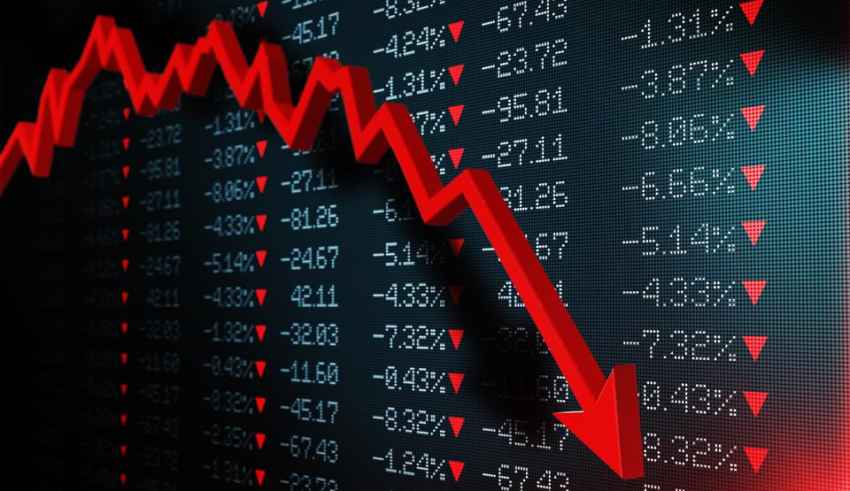
A recession is defined as a dramatic decline in economic activity that lasts months or even years. A recession is declared when economy suffers negative GDP, rising unemployment, declining retail sales, and contracting measures of income and manufacturing over a protracted period of time. The nature and causes of recessions are both obvious and unclear. Recessions are essentially a cluster of business failures that occur at the same time. Economists tend to disagree about the exact causes of a recession, but there are several fundamental concerns worth considering.
First, an unchecked high inflation is probable to provoke enough economic distortions to bring on a recession. While it is usually not the main cause of a recession, inflation may act as an accelerator to other factors such as high interest rates and loss of confidence in economy that directly influence recession. Inflation reduces buying power, or the amount of anything that can be bought with currency. In 2021, the global inflation rate was 3.4 percent, and, in 2022, it is projected at 5.7 percent in advanced economies and 8.7 percent in emerging market and developing economies. If inflation remains high for an extended period of time, it will lead to hyperinflation. This is when the anticipation that prices will continue to rise causes additional inflation, lowering the real value of currency. In other words, if inflation remains high and wages do not rise sufficiently to keep up the pace (as is now the case), inflation may eventually cause a recession. It has the effect of a large pay cut for the whole economy, and the consumption will likely decrease. As a result, customers go into a cautious mindset and spend less money. Panic ensues when a significant portion of population “rushes for the exit”. Businesses are advertising fewer job opportunities, and the economy is creating fewer jobs. Retail sales are decreasing. The unemployment rate rises as a result of businesses cutting back in anticipation of decreased purchasing. All of that contributes to an economic downturn that may be mitigated or transformed into an economic depression.
Next, it is imperative to address some of the widely acknowledged direct causes of recession, such as rising interest rates and declining housing prices and sales. Interest rates in the United States, United Kingdom, South Korea, New Zealand, and Brazil all rose in 2022. In the short term, experts believe interest rates will likely rise even more to fight inflation. When interest rates increase too quickly, it can set off a chain reaction that impacts both the domestic and global economies because that augmentation generally reduces liquidity (the amount of money available to invest or spend). Higher interest rates in the economy entail higher borrowing costs for corporations, businesses, and people. Higher borrowing rates reduce consumer spending as well as business investment spending. Consequently, general demand for goods and services falls, decreasing the consumption and leading to a recession. Additionally, according to real estate analysts monitoring main global property markets, significant price increases of up to 50% in recent years may be coming to a stop, with decreases in 2022 and 2023 in some countries. The increased prices of investments such as gold, stocks, or housing during the COVID-19 pandemic created asset bubbles that were inflated beyond their long-term worth. Usually, those bubbles themselves arrange for a recession to occur when they burst. Today, with falling housing prices and sales, homeowners and real estate developers can be forced to reduce their spending when they lose equity and are unable to take out second mortgages. For example, that was the original cause of the 2008 Great Recession in the U.S. Furthermore, hedge funds and banks ultimately lose money on intricate investments based on declining underlying home values. All of that contributes to consumers losing trust in the economy and the country going into a recession.
Recession is a negative phenomenon because it ordinarily causes high unemployment, business failures, and bankruptcies as a result of diminished demand from consumers and businesses. Economic recessions may be associated with a higher prevalence of mental health issues, such as common mental illnesses, drug abuse, and, ultimately, suicidal behavior. Moreover, the financial crisis in one country is very likely to spread to others if that country is heavily involved in global trading. Some economically weaker countries may not recover from a recession on their own requiring intervention by the European Union, the European Central Bank, the International Monetary Fund (IMF), etc. That, in turn, may have disastrous ramifications for the global economy.
The concern now is how possible a global recession is. For example, in the U.S, inflation is at 8.5% and unemployment is at 3.6% – suggesting a recession will be very hard to avert. In fact, every time inflation has topped 4% and unemployment has fallen below 5% since the 1950s, the U.S economy has entered into a recession within two years. What does that mean for the rest of the world? In the Great Recession of 2008, the financial crisis spread from the United States to other countries, particularly in Western Europe. Recovery was delayed and uneven in many nations impacted by the Great Recession, and the larger societal implications of the downturn—including reduced birth rates, record high levels of student debt, and reduced employment opportunities among young adults—were projected to remain for many years.
References
Finley, R., & Kishan, H. (2022, June 2). Some real estate markets seen falling as global frenzy fades – reuters poll. Reuters. Retrieved June 12, 2022, from https://www.reuters.com/markets/poll-some-real-estate-markets-seen-falling-global-frenzy-fades-2022-06-01/
Rodeck, D. (2022, May 12). What is a recession? Forbes. Retrieved June 12, 2022, from https://www.forbes.com/advisor/investing/what-is-a-recession/
Smith, C. (2022, June 12). US set for recession next year, economists predict. Subscribe to read | Financial Times. Retrieved June 12, 2022, from https://www.ft.com/content/53fcbbf1-39e3-483c-a6f2-b0de432ed5a3
By The European Institute for International Law and International Relations.












